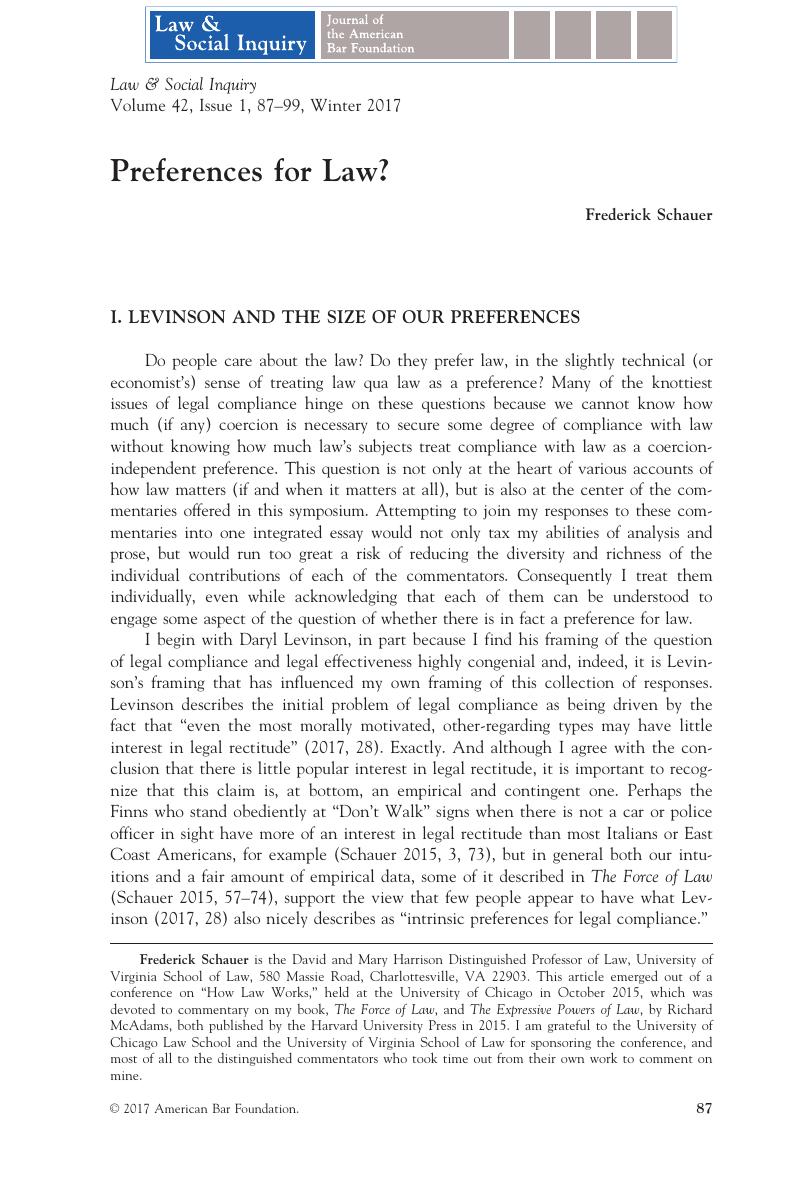Crossref Citations
This article has been cited by the following publications. This list is generated based on data provided by Crossref.
Goldbach, Toby S.
2019.
Why Legal Transplants?.
Annual Review of Law and Social Science,
Vol. 15,
Issue. 1,
p.
583.
Miotto, Lucas
2021.
Conceptual Jurisprudence.
Vol. 137,
Issue. ,
p.
111.
Depoorter, Ben
and
Tontrup, Stephan
2024.
Aspirational Laws in Action: A Field Experiment.
Law & Social Inquiry,
Vol. 49,
Issue. 3,
p.
1747.



